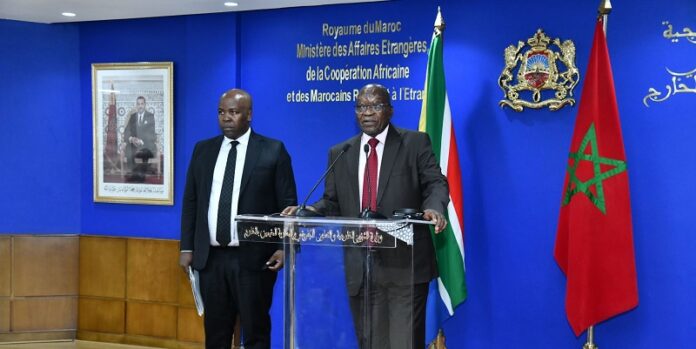In a move that marks a significant shift in South African foreign policy, Jacob Zuma has thrown his full support behind Morocco’s autonomy plan for the Sahara. Speaking after a meeting with Moroccan Foreign Minister Nasser Bourita, the former South African president and current leader of the Umkhonto weSizwe (MK) party described the Moroccan initiative as a credible, balanced solution capable of fostering lasting peace in the region.
Zuma praised the proposal for striking what he sees as a vital balance: it acknowledges the need for local governance while preserving Morocco’s national sovereignty. In his view, Rabat’s approach reflects the will of the Saharan population and addresses the wider imperative of regional stability.
The MK party went further by releasing an official position paper asserting that the Sahara has long-standing historical ties to Morocco, predating Spanish colonization. The document emphasizes the longstanding allegiance of Saharan tribes to the Moroccan monarchy, portraying this relationship as the foundation of the Kingdom’s legitimate claim. It calls on the international community to formally recognize the deep-rooted historical and legal bonds linking the Sahara to Morocco.
Titled “A Strategic Partnership for African Unity, Economic Emancipation, and Territorial Integrity: Morocco,” the paper also frames the Green March as a defining moment in Africa’s liberation movements. By referencing this symbolic event, the party situates Morocco’s territorial claims within the broader context of decolonization and national sovereignty on the continent.
Zuma also highlighted the growing international and African support for Morocco’s plan, portraying it as both a peace-building mechanism and a roadmap for development in the region. He argued that the initiative deserves international backing as a vehicle for prosperity and long-term stability.
This endorsement stands in stark contrast to South Africa’s long-held alignment with pro-independence movements in the Sahara. The statement gains even more significance considering the diplomatic thaw that began in 2017, when Zuma and King Mohammed VI met on the sidelines of an African Union–European Union summit in Abidjan, signaling the start of a quiet reconfiguration in bilateral relations.





